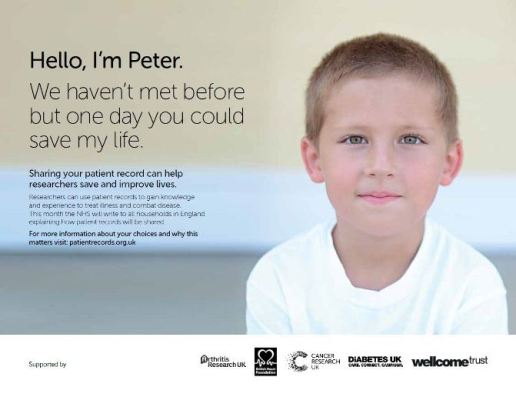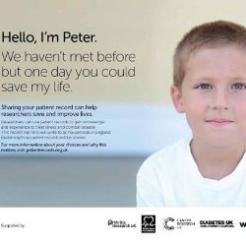A number of medical research charities have today launched a campaign explaining how they can use data to improve care and research, in a bid to discourage people from opting out of the new centralised healthcare database.
Changes to how patient data is collected from GP surgeries will give researchers access to non-identifiable data from health records.
Patients will have the right to object to their data being shared with the new central repository and NHS England is sending a leaflet to 22 million households in England explaining the changes.
Arthritis Research UK, Cancer Research UK, Diabetes UK, the British Heart Foundation and the Wellcome Trust are among the 42 members of the Association of Medical Research Charities supporting the campaign. Adverts will appear online and in newspapers this week.
Sharmila Nebhrajani, chief executive of the Association of Medical Research Charities, said: “I believe people will be willing to make the public spirited act of sharing their medical records with researchers as long as they are confident that their data will be treated with care to protect their identity, competence so that leaks and mistakes will not occur, and used only with their consent, allowing those who do not wish to take part to opt out.
"And from this sharing, researchers can find new knowledge, insights and treatments that will benefit us all.”
Dr Harpal Kumar, chief executive of CRUK, added: “The UK is in a unique position in this area because it has more comprehensive data than anywhere else in the world. Much of the progress we've made in understanding cancer is based on analysing patient records - helping us understand the causes of the disease and increasing our knowledge of how to prevent it as well as finding new ways to diagnose cancer earlier when treatment is more likely to be successful.”










